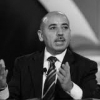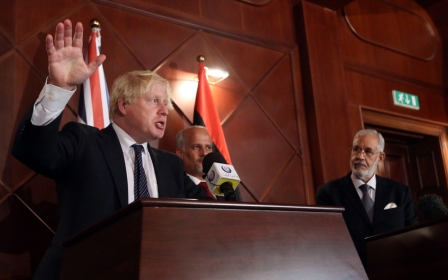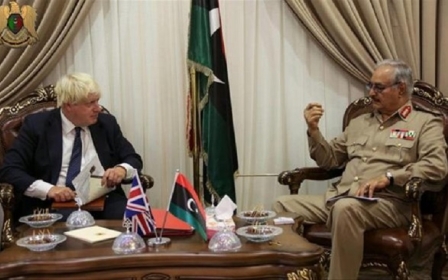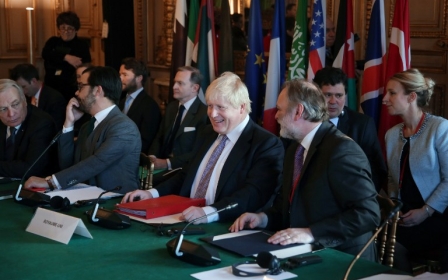What does Boris Johnson really know about Libya?
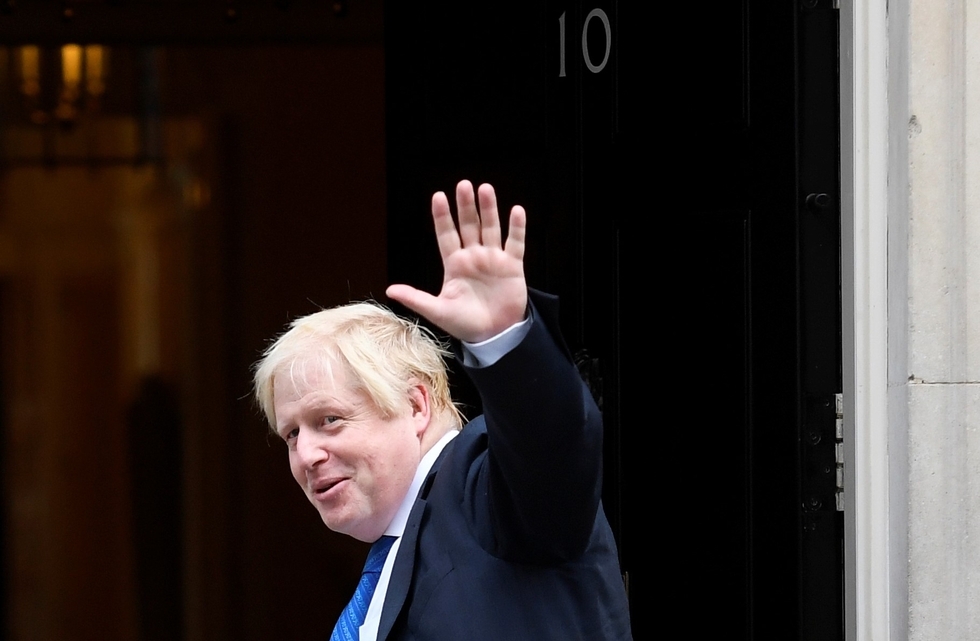
At a Conservative Party conference fringe meeting on Tuesday, UK Foreign Secretary Boris Johnson, during a talk about opportunities and prospects for British business, made a controversial and highly offensive remark related to the war-devastated Libyan city of Sirte.
Johnson bemused his audience by stating that "There’s a group of UK business people, wonderful guys, who want to invest in Sirte, on the coast, near where Gaddafi was actually captured and executed, as some of you may have seen. And they literally have a brilliant vision to turn Sirte, with the help of the municipality of Sirte, to turn it into the next Dubai. The only thing they’ve got to do is clear the dead bodies away and then they’ll be there."
It was very insensitive and crass to talk about those bodies as if they were some sort of rubble that must be removed before Sirte becomes a destination for British businessmen to enjoy
The reference to only needing to "clear the dead bodies away" before Sirte can be turned into a new Dubai and enjoyed by foreign business visitors drew widespread condemnation from both British and Libyan commentators.
It is important to remember that Sirte was the largest stronghold of the Islamic State (IS) outside of Iraq and Syria until it was recaptured in December 2016.
Some 750 young Libyans died in recent battles to liberate the city from IS control. Those young Libyans, most of them in their twenties, died in order to eradicate this major threat of terrorism to Libya and to the rest of the world, including the UK!
Insensitive and crass
It was very insensitive and crass to talk about those bodies as if they were some sort of rubble that must be removed before Sirte becomes a destination for British businessmen to enjoy, sunbathing on what Johnson called the "bone-white sandy beaches" of the city. T
he battle for liberating Sirte was hard fought and very bloody, with Libyan fighters moving from one building to another, negotiating booby-traps and tunnels set up by entrenched IS fighters.
Some of the bodies of those brave young Libyan fighters are still under fallen buildings and collapsed tunnels; the very least Johnson could do is apologise to the families of those young men who have died.
He should have completely retracted those comments irrespective of whether he has heeded calls for resignation or not, which is a matter for his government and prime minister.
The fact that Johnson saw the destruction and deep misery of the city of Sirte - and Libya as a whole - only as an opportunity for British business people to benefit from speaks volumes. It reflects a lack of a clear and comprehensive UK policy to honour its commitment to help Libya address its urgent priorities.
What Libya needs is to end its conflict, achieve peace based on a genuine accord between its warring factions and to reach a stable environment with a new constitution in place that will allow for vitally needed institution and state-building.
Johnson has accused his critics of his latest gaffe of having "no knowledge or understanding of Libya". Yet, following a recent visit to Libya in which he met with General Khalifa Haftar in his military headquarters near Benghazi, Johnson said that Haftar "has pledged to give up military rule if he becomes the country's president".
This strange statement showed a lack of appreciation, on Johnson’s part, by overlooking the fact that a president would assume the role of "commander in chief of the armed forces" which means that Haftar, as a president, will combine both military and political leadership.
Global Britain?
If such a scenario became a reality, as Johnson seems to readily accept, then we will face a high risk of Haftar attempting to return the country to a military dictatorship and even annul or amend the constitution to give himself the absolute power which he has been craving. Such flawed statements do not reflect a deep understanding of Libya by the man in charge of the UK's foreign policy.
Johnson’s careless statement and clear lack of understanding of Libya also undermines the UK’s efforts to help all stakeholders reach consensus
However, according to a BBC journalist, the real motive for Johnson’s two consecutive visits to Libya recently was actually to provide his critics with an answer to what he means by the slogan "global Britain". This slogan, crafted by Johnson, was a message to try to show that the UK was not retreating from the world by voting for Brexit, a vote that Johnson was a champion of.
It is worth remembering that in 2011, UK, France, Italy as well as other major western powers led in unison in their military campaign against the brutal regime of the late Libyan leader Muammar Gaddafi when faced with a popular civilian uprising. However, once the Gaddafi regime was removed, some of these countries started pulling in different and even opposite directions whilst pursuing their own narrow interests in Libya.
They walked away from helping Libyans lay the foundations of a new modern democratic state based on institutions, security and rule of law, and began competing to secure lucrative business deals. France, for example, tried in 2012 to sell Libya a defunct debilitated oil refinery located in France for $1.4bn and has since been, over the last three years, covertly supporting Haftar which has further fuelled the conflict in Libya.
As some western and EU countries continue to compete against each other over Libya, reconciliation and a final solution to the current Libyan conflict will become much more difficult to achieve.
Johnson’s careless statement and clear lack of understanding of Libya also undermines the UK’s efforts to help all stakeholders reach consensus and move forward to arriving at a new constitution and holding new elections in the country, which are now the main priorities in Libya.
- Guma El-Gamaty is a Libyan academic and politician who heads the Taghyeer Party in Libya and is a member of the UN-backed Libyan political dialogue process.
The views expressed in this article belong to the author and do not necessarily reflect the editorial policy of Middle East Eye.
Middle East Eye propose une couverture et une analyse indépendantes et incomparables du Moyen-Orient, de l’Afrique du Nord et d’autres régions du monde. Pour en savoir plus sur la reprise de ce contenu et les frais qui s’appliquent, veuillez remplir ce formulaire [en anglais]. Pour en savoir plus sur MEE, cliquez ici [en anglais].


